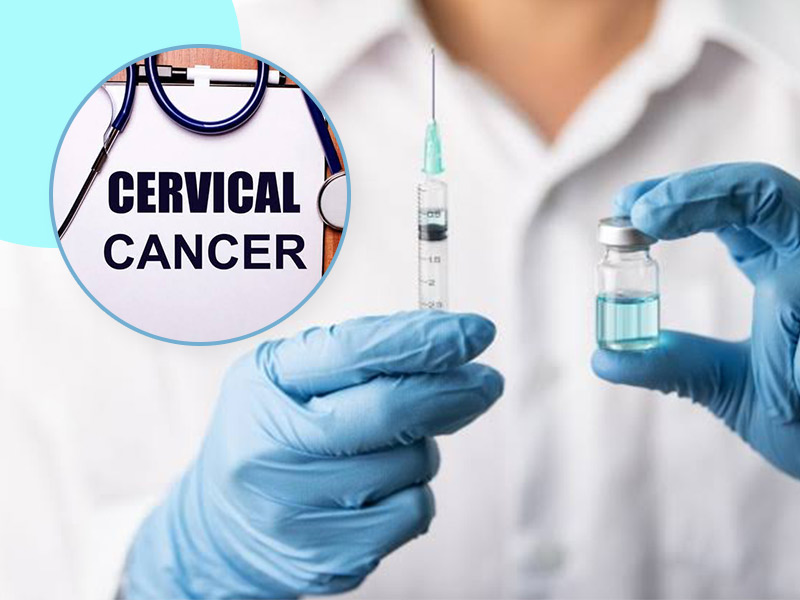
Although, most of the HPV infection cases are found to be asymptotic and gets cleared out from the immune system on its own within sometime, but recurring infection can lead to certain pre-cancerous changes in the cervix. These chances can slowly progress into cervical cancer. As the protection against HPV is long lasting, early administration is required and it should be provided at the correct age.
Table of Content:-
It is also suggested by experts for a timely cervical cancer screening for people who have a family history of the disease. It is important to get vaccinations even for those in the initial stages of cervical cancer. And, the vaccine helps in preventing several other HPV infections. Onlymyhealth editorial team spoke to Dr. Saphalta Baghmar, Sr Consultant Medical Oncology, Max Superspeciality Hospital, Vaishali, about using HPV vaccine to prevent cervical cancer.
Who all should take the HPV and when?

HPV vaccines are given in inactivated form to protect against four primary types of HPV infections. HPV vaccinations are clinically approved for females of ages nine to forty five years, given in three shots with a six-month gap between the doses. Adolescence is the best age to deliver HPV vaccine since it allows for a greater immune response. These vaccines are extremely safe and effective at reducing the risk of cervical cancer.
When the vaccination is given before the age of 14, a six-month to one-year interval between doses is adequate. However, if the vaccine is administered beyond 14 years, three doses are necessary. The second dose should be given 1-2 months after the first dose, and the third dose should be given at least six months after the first dose when three doses are required.
Also read: HPV Vaccine: Who Needs It And How Does It Work? Clarifies Expert
HPV vaccines
There are mainly 3 types of HPV vaccines available, and they are:
1. Cervarix: Cervarix vaccine helps in fighting against type 16 and type 18 of HPV, which is one of the main factors for causing HPV cancers.
2. Gardasil: The Gardasil vaccine is responsible for protecting against 4 types of HPV including type 16, type 18, type 31 and type 33.
3. Gardasil 9: As the name says, gardasil vaccine helps in preventing 9 different types of HPV, mainly type 6, type 11, type 16, type 18, type 31, type 33, type 45, type 52 and type 58.
HPV vaccine for cervical cancer prevention

HPV vaccination is an important administration, as it helps in protecting against infections caused by HPV. As most of the HPV infections are asymptotic and do not show any persistent symptoms in the early stages, still it is necessary to get vaccinated to prevent the burden of preventable cervical cancer cases. It is a sexually transmitted infection, HPV gradually affects the cervix and can also lead to vaginal and vulvar cancer if not detected timely. Widespread immunisation can, not only reduce the number of cases but also eliminates the impact of such types of cancers. In addition to this, it also helps in the prevention of genital warts and anal cancer in both men and women.
Also read: Stages of Cervical Cancer, Symptoms, Identification And Preventive Methods
The vaccination is not only restricted to girls and women, but boys should also be administered until the age of 21 years (as per the dosage) which may prevent transmission of the virus among women. There are various types of HPV which is linked to other cancers such as throat, mouth and oral cancers. So HPV vaccination is likely to provide protection and helps in prevention of these cancers too.
Many medical experts on social media have also started making awareness reels regarding this. Influencer and expert, Dr. Tanaya also shared a reel about HPV vaccine to prevent cervical cancer.
Check out her post:
View this post on Instagram
Image credits: Freeppik
Also watch this video
How we keep this article up to date:
We work with experts and keep a close eye on the latest in health and wellness. Whenever there is a new research or helpful information, we update our articles with accurate and useful advice.
Current Version